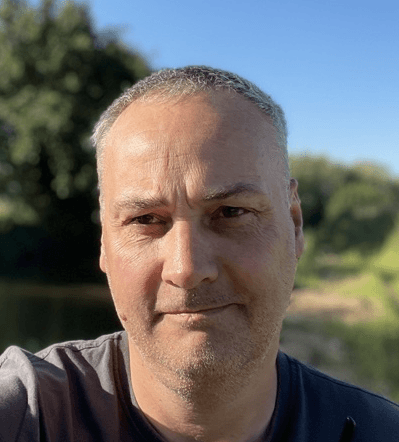
Simon Jenner
Thursday 24 June 2021

For the past six months we have been testing various investment processes and products. Super Early Seed has been the clear winner.
Posted in:
Startups
The origin story of Million Labs will refer back to 4pm on the 20th July 2018 as the actual point at which we started talking about using no-code to build a bank. It would have been a few days earlier if Simon hadn’t forgotten the meeting and failed to turn up. So, after a brief delay, we sat in Urban Coffee on Church Street in Birmingham and Simon explained how we could use this amazing new thing called ‘no-code’ to build things ourselves. It would be faster, it would be cheaper and we would be able to get our ideas straight from our heads and into an application without involving the chain of ‘Chinese Whispers’ that is a development team.
It wasn’t until December 2019 that we pivoted from building one thing for ourselves to building many things for lots of people. Simon’s fault again. He had worked on a few side projects and it was becoming clear that, not only could we could get startups launched faster and cheaper with no-code, but they were also performing just as well as founders that had received far more funding to build ‘proper technology’. An old banker and an angel investor were only going to come to one conclusion. The startup game had just changed and no-one had noticed.
Of course if you want to build a financial service product focussed on pre-seed stage founders using no-code first you need to understand your customers. So we started out building applications for founders ourselves, then we started building an agency team. As that team has grown we have been lucky enough to work with some real no-code rock stars in a growing band of personalities stretching around the globe. We’ve built everything from fintech to farm shops, from AI to Lo-Fi. My only regret is that we never got to build the Mugshot Magazine (for me it’s the crazy project that got away).
As great as the agency had been, our bootcamps massively amplified the number of founders we could meet. Hundreds and hundreds of founders have been through our classes and, once again we learned so much by rolling up our sleeves and teaching a few ourselves. I think our bootcamps have introduced me to some of my favourite founders. From Kento and his MedTech in Japan, Aga and her Library in Florida, Bill with his Mushrooms, Piet the Grumpy Dutchman and of course the little girl that built and app to track the ice-cream man. There was even a memorable occasion where a song about Miso Soup got stuck on a loop that I shan’t forget in a hurry.
In January 2021 we had learned enough to start investing formally. Our plan was always to invest with two products:
A product that would give founders just enough cash to design, build and market test an MVP; andA product that would provide funding to founders using no-code that were ready to scale.
We called the first product ‘Super Early Seed’ and the latter ‘Pre-Seed’.
Over the last six months the reality has been that pre-seed has been a distraction. Founders that approach us for pre-seed are almost never investment ready. They have little evidence of traction, nothing by way of customers, revenues or proof of a workable sales and marketing model. We could spend time developing systems to vet the pipeline better (and to give better feedback in the process) but for now we are simply turning off the tap because…
…Super-Early Seed has been amazing. It allows us to work with founders to define a minimum viable product and how it will be tested in the market. It allows us to help them become investment ready for later stage funding (if necessary). Also the outcomes of Super Early Seed are proving to be similar if not better than coded pre-seed projects:
Founders are launched an trading with scaleable, secure and extensible technologyStartups are gaining traction with serious customer numbers and revenuesRunways are longer and it’s cheaper to iterate or pivot
To make Super Early Seed work we have had to standardise. The margins on small investments don’t warrant the relationship model of a lot of Angel Networks and Pre-Seed funds. We have to work like a retail bank. Our vetting process is currently our focus. Streamlining onboarding while avoiding customer alienation is a challenge. Our product is already standardised. It’s a one size fits all advanced subscription model and that makes it easier to implement.
We can help ten times more founders at Super Early Seed than we can at Pre-Seed so right now that’s our focus. Any pre-seed investments we make going forward will be follow-on funding into this portfolio. It’s a common sense strategy that helps us to back our own successes rather than being distracted by outside opportunities.
Put simply, being angels and investing into startups with traction proves nothing. Creating a new class of investments that gives founders around the globe a break they would have never had otherwise is a worthwhile endeavour. Let’s hope we can make it work.
If you want to apply for Super-Early-Seed you can do that right from our home page.
Ready to launch your startup idea with an MVP?
Download our step by step guide for non-technical founders to create a startup Minimum Viable Product (MVP)
Get the eBook

